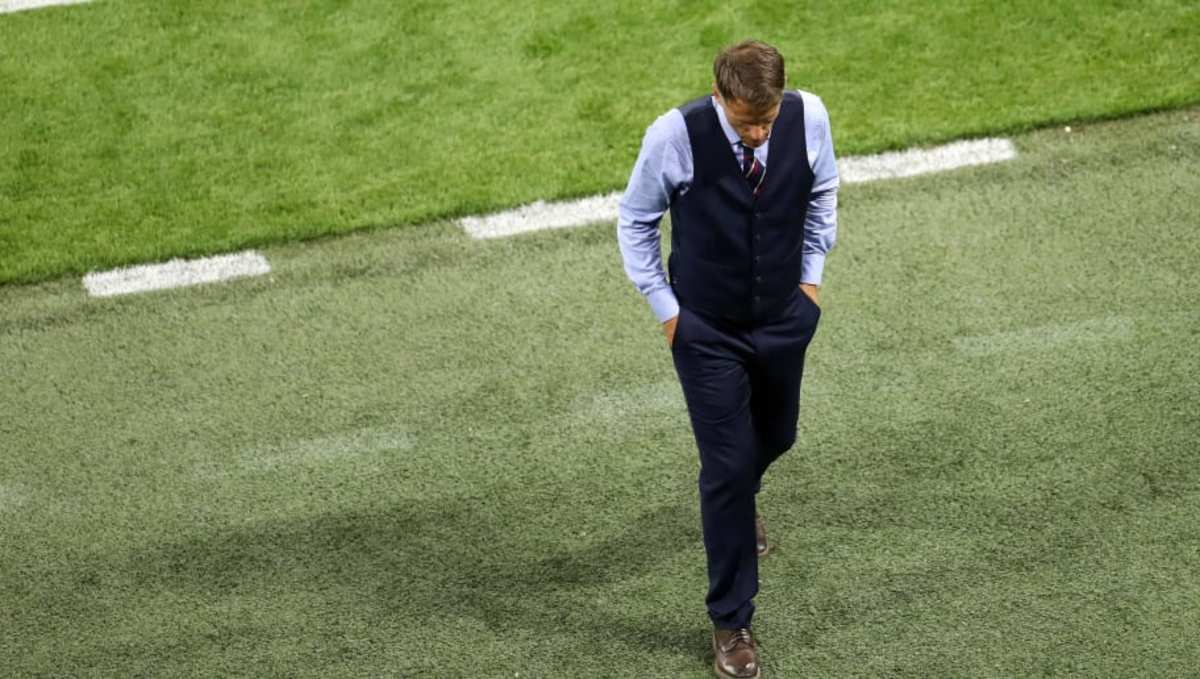Women's World Cup Post-Mortem: Questions Linger Over Phil Neville's Role as England Manager

From France - The day after the night before – England are out of the Women’s World Cup, and it’s time for the inquests to begin.
The first question to be asked will be the biggest, and the one that some people behind the scenes at the FA will be asked (in public or in private) over the next week or two, especially once Saturday’s third-place playoff is out the way.
Is Phil Neville the coach to take England forward into Euro 2021? Or to take it onto an even more basic level; how good a coach is he, really?
Let’s start with the positives. He’s well-liked around the squad – that’s not been faked or put on – and he’s helped turn around a fractured and almost toxic England camp into one full of players and staff all pulling in the same direction. He’s done that well, and he’s done it quickly. Full credit.
He’s done a good job in the media too, a relatively speedy change-up from the bafflement at his appointment to a widespread acceptance that yes, he’s the person for the job. A savvy FA media team have helped with that, no doubt, but that would’ve have worked without Neville being generous with his time and reasonably personable.
Those are his defining successes as a manager. Those are also, basically, qualities that start and end not far from ‘he’s a nice bloke’.
Then we look at Phil Neville, the tactician. The man whose philosophy, he’s told us time and again this summer, is ‘non-negotiable’. That non-negotiable style brought England to the World Cup semi-finals (again), but – with a better group of players than last time – have the Lionesses actually improved?
As another writer put it partway through Tuesday night’s defeat to the USA: “24 games into Phil Neville's tenure and at no point have England actually been able to defend.”
It’s harsh, but broadly true. Lucy Bronze and Steph Houghton have done an awful lot of heavy lifting, but the second centre-back position has been a tricky one and – worse – the tactical setup has left the back four exposed on a staggering number of occasions.
Neville’s England play with two ‘standard’ midfielders and a nominal third, who is essentially a number 10 (usually his actual number 10, Fran Kirby). Those two midfielders are Jill Scott and Keira Walsh – with the former marauding forward all over the pitch to leave Walsh mopping things up all by herself an unacceptable amount.
The gap between England’s defence and attack has been picked up on by journalists covering the team throughout the last year, especially at the SheBelieves Cup this spring and the World Cup this summer. It’s a massive, glowing, video game boss fight weak spot, there’s no way Neville doesn’t see it, and he’s refused to change the way he sets his team up to deal with it.
Because the style is non-negotiable.
The Lionesses have looked suspect from set-pieces too, and vulnerable to lapses of concentration at the back in general. It’s no coincidence that both of the USA’s goals last night came from headers, scored by forwards who were given more time and space than any World Cup semi-finalists should have afforded them.
Despite it all, England were still a toenail away from taking the US to extra time on Tuesday night. It’s a testament to the players on the pitch, who fought their hearts out. It’s a testament to Ellen White, who’s had a staggeringly lethal tournament. It’s a testament to Lucy Bronze, and her full-pitch recovery runs in the 90th minute when everybody else was flagging in the heat.
Is it a testament to Neville’s coaching and tactical acumen, honed in one game at Salford and as an assistant coach to his brother in a disastrous spell at Valencia? On balance, it may not be. If he stays in the job until Euro 2021, he’s got a lot of growing to do.









